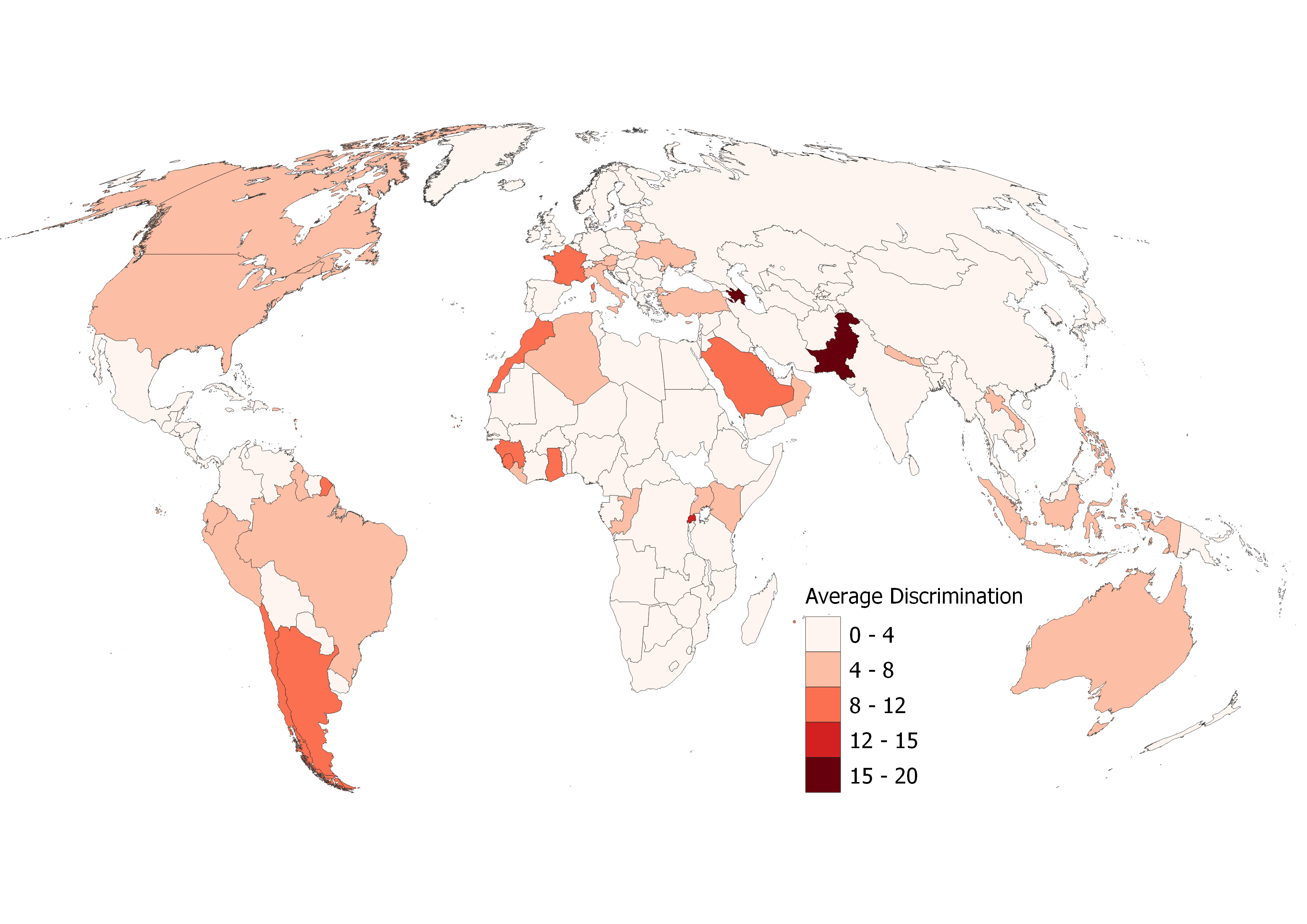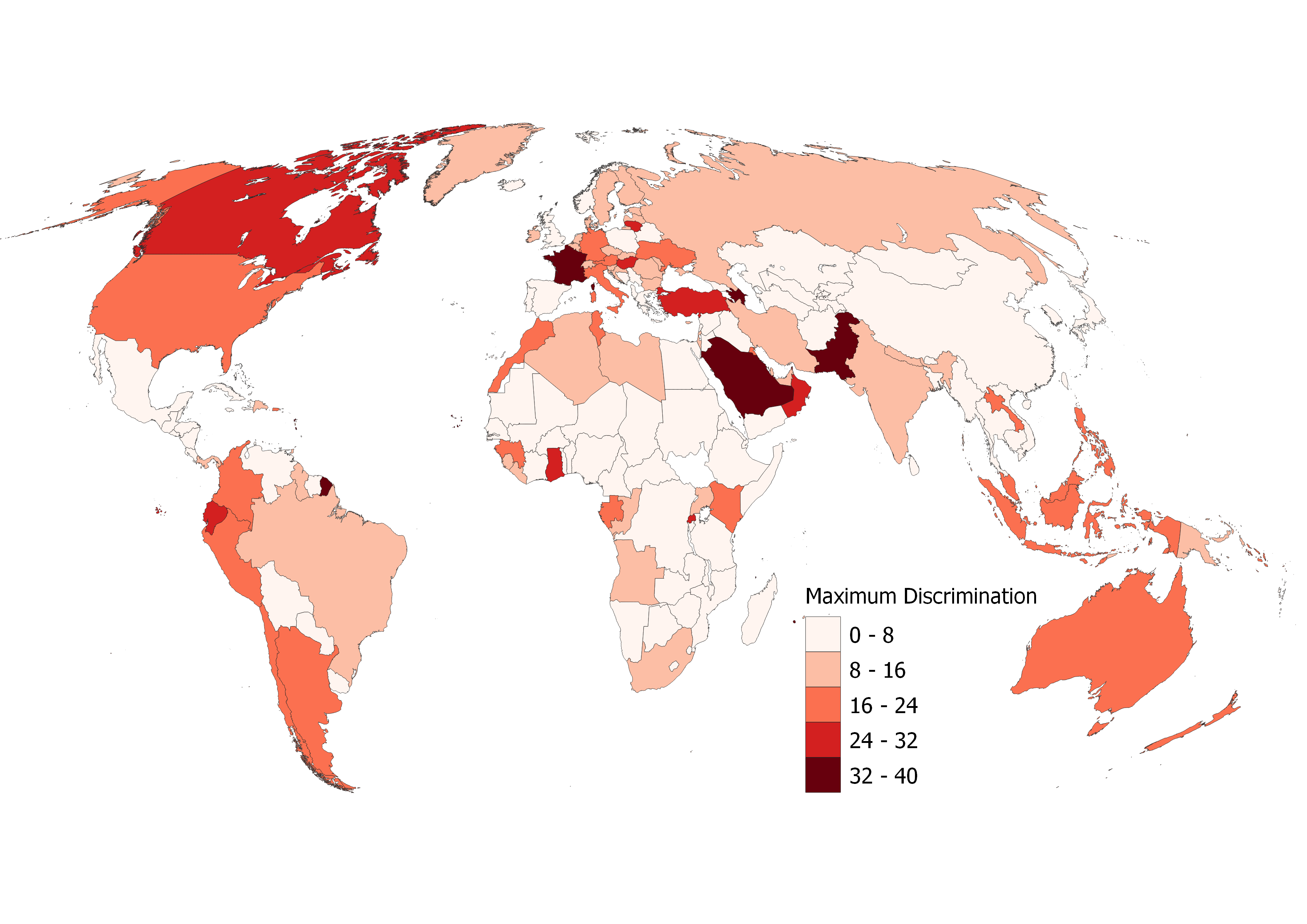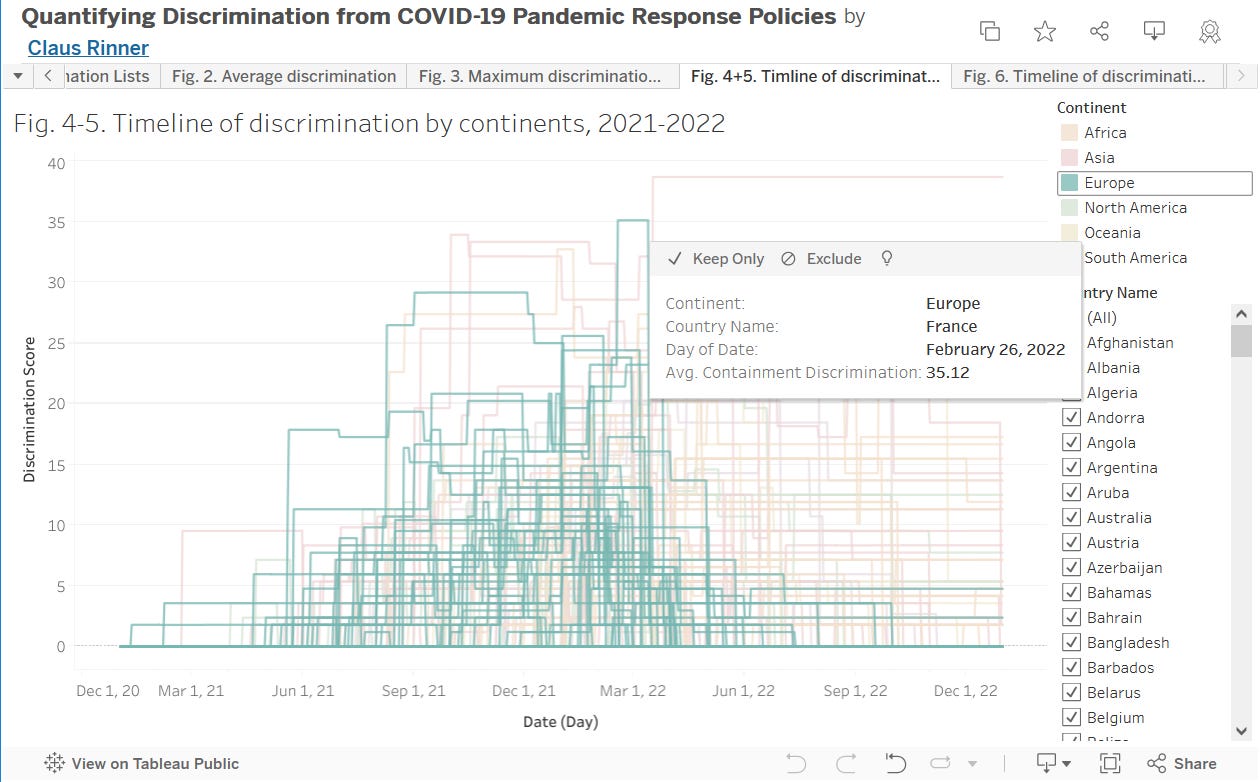
I am pleased to report a new publication under the RECOVER19 project. With two co-authors, I wrote about “A Global Index to Quantify Discrimination Resulting from COVID-19 Pandemic Response Policies”. The full text of the article is available from the well-regarded International Journal of Environmental Research and Public Health.
Using country-level daily data from the Oxford COVID-19 Government Response Tracker (OxCGRT), we calculate a numeric index of discrimination by subtracting the stringency of “containment and health” measures applicable to vaccinated people from those applicable to unvaccinated people. The index thus measures a degree of discrimination for all countries and days, where/when a differential policy was in effect (and was recorded by the OxCGRT researchers).
.

Click here for an enlarged view

Click here for an enlarged view
World maps of discrimination. Left: average level of discimination across the 2021-2022 time period. Right: maximum/worst level reached on at least one day during the period. Source: Rinner et al. (2025), https://doi.org/10.3390/ijerph22040467
.
You can check out the results in the article or in the accompanying interactive visualization. It is important to view this work as an exploratory study that might encourage more detailed analyses within countries and world regions. We were fully dependent on the quality of the OxCGRT data, which have some limitations discussed in the article.
.

Click here for an enlarged view
Timelines of discrimination of the unvaccinated; European countries highlighted, pointer on France’s curve with a maximum level of 35 (the difference between containment and health index scores for vaccinated and unvaccinated, measured between 0-100). Source: Authors’ interactive visualization, https://public.tableau.com/app/profile/claus.rinner/viz/QuantifyingDiscrimination/Fig_2_Averagediscrimination
.
What I consider most important in our article is the positioning of differential pandemic response policies as discrimination. We took a lot of care with that argument, as we were expecting pushback from journal editors and reviewers. For a while now, I (and others) have argued that the protection from discrimination that is anchored in various human rights codes and acts, should not be limited to a pre-determined list of “grounds”. Indeed, if you look at the UN Declaration of Human Rights, “political or other opinion” as well as “other status” are included, and the list of preceded by a statement about individual rights and freedoms “without distinction of any kind, such as..”, clearly marking the list as examples rather than an exhaustive list of grounds.
It was not easy to get this article out, but we did not experience attempts to suppress it during the publication process, in contrast to previous instances that I have written about. We submitted the completed manuscript to a major international public health journal in mid-2024 and received a rejection within about five weeks. The single reviewer had a large number of concerns, some more valid than others. This feedback was helpful, yet it took us until January 2025 to improve the manuscript and submit to IJERPH. After another quick, six-week turnover, we received the coveted “minor revisions” decision along with two reviews containing numerous required and recommended changes to be addressed within a five-day review cycle. The reviewers did not appear to be very sympathetic to our work, but they assessed it in a careful and unbiased fashion, resulting in a number of helpful refinements.
I have made the point about the definition of “discrimination” before, and now it is in the peer-reviewed literature! I hope that academics in Law, Criminal Justice, Sociology, and similar fields will also write about this, so that the point cannot as easily be swept under the carpet again. More generally, I believe that it is critically important that dissenting scientists and analysts publish their work in the peer-reviewed literature. In fact I have another manuscript under review, in which we talk directly about the issues with scientific publication during Covid and the need to “correct” the scientific record for future reference. Within the RECOVER19 project, we are growing a collection of relevant publications, see this. If you publish in the scholarly literature, please cite our work and let me know about yours.
*
Click the share button below to email/forward this article. Follow us on Instagram and X and subscribe to our Telegram Channel. Feel free to repost Global Research articles with proper attribution.
Featured image source
Global Research is a reader-funded media. We do not accept any funding from corporations or governments. Help us stay afloat. Click the image below to make a one-time or recurring donation.

Comment on Global Research Articles on our Facebook page
Become a Member of Global Research
Source link

